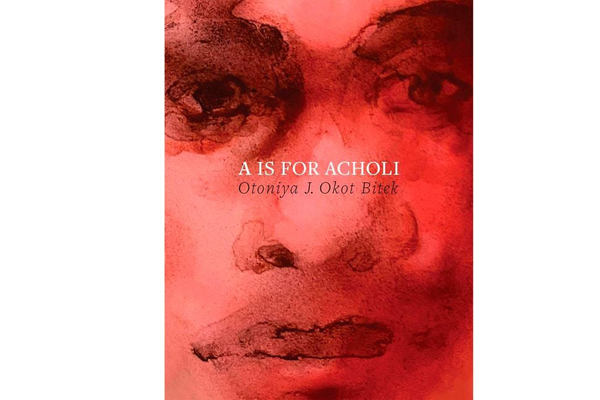
Otoniya tackles the challenges of race, identity, existence, and belonging faced by Africans living in the Black diaspora.
Each letter in the alphabet in “An Acholi alphabet” defines the Acholi and their skin complexion, their houses, the Acholi dance, the dead poets and singers, the glory and rhythm of ostrich features, the dance of the evil, the small heaps of mangos and homemade brew for sale by the roadside, and the rejection of the Acholi in foreign lands, among others.
The poem “And” is mainly written with the word ‘and’ repeated several times with commas, semicolons, full stops, quotation marks, apostrophes, and an ellipsis, and a dash. “…and…A formidable silence hung over the scene…and…,” it reads in part.
“Ah, well” is mainly written with commas, semicolons, full stops, quotation marks, apostrophes, and an ellipsis, and a dash.
“… Ah, well/ it’s all over now,” it concludes. “How she talked” is also mainly written with commas, semicolons, full stops, quotation marks, apostrophes, and an ellipsis, and a dash. “…she talked like a fury…,” it reads in part.
The poem with the longest title, Dark human shapes could be made out in the distance, flitting indistinctly, has four dark human shapes of different shapes.
“An air of brooding over an inscrutable purpose/i don’t understand…,” it reads.
The poet opens up ways of rethinking history as she rewrites both the 1862 contact of the Acholi people with the British and the racist texts of Joseph Conrad, while also searching for a way to live on lands that are fraught with the legacies of colonisation, similar to her ancestral homeland, the publishers add.
A Is for Acholi has been shortlisted for the 2023 Pat Lowther Memorial Award. It is a finalist for both the 2023 Dorothy Livesay Poetry Prize and the 2023 Jim Deva Prize for Writing that Provokes. Otoniya, poet, writer and assistant professor at Queen’s University, Kingston in Canada, has also written 100 Days and Song & Dread.